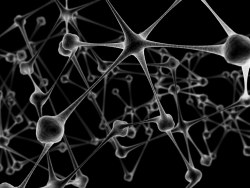Found: Genetic Link to "Basic" Migraine
A study of genetic data from over 50,000 people has revealed a genetic link to migraine, and is providing new information about the source of migraine and its treatment.
First of all, why are we even looking for genetic links? Well, for some time now we’ve had a reasonably good theory that migraine is genetically-based. Just a good guess? No, research up to this point has given us good reason to suspect that genetics play a large role in migraine.
Genetics and Migraine: Why we know so little
 |
Now genetic research is still relatively young. We have a lot to learn. So it will take time to learn how various genetic factors impact our health.
However, with migraine we got a head start. Certain types of migraine have a strong relation to family ties, and have a strong genetic factor. So these have been studied an unusual amount (read: familial hemiplegic migraine). And as we’ve learnt how these genetic links work, we’ve come to believe that there are strong genetic links to other types of migraine as well. And, in fact, we’ve found that many migraineurs have certain genetic abnormalities.
Dr. Sheena K. Aurora of the Swedish Headache Center in Seattle, USA, summarized some of the past research well in the book Menstrual Migraine:
There is an increasing body of evidence for the concept of central neuronal hyperexcitability as a pivotal physiological disturbance predisposing to migraine (Welch et al., 1990). The reasons for increased neuronal excitability are likely multifactoral, with an underlying genetic basis. Genetic studies have revealed an abnormality of calcium channels that has been introduced as a potential mechanism of interictal neuronal excitability (Ophoff et al., 1996)…
In other words, this is at least one way that a genetic factor seems to make the migraine brain different – more excitable.
The 2010 Migraine Genetics Study
The recently published study came from the International Headache Genetics Consortium, a cooperation of researchers from around the world. The genetic profiles of thousands of people, both migraineurs, and non-migraineurs, were studied. The chair of the consortium, Dr Aarno Palotie, says,"This is the first time we have been able to peer into the genomes of many thousands of people and find genetic clues to understand common migraine. Studies of this kind are possible only through large-scale international collaboration — bringing together the wealth of data with the right expertise and resources — so that we could pick out this genetic variant. This discovery opens new doors to understand common human diseases."
And the results?
Patients with a DNA variant on Chromosome 8 between two genes (PGCP and MTDH/AEG-1) have a significantly greater risk of developing migraine. Why? The link appears to relate to something called glutamate.
Glutamate is a common neurotransmitter – it transmits messages in the body. In fact, it transmits pain signals. This particular DNA variant regulates glutamate levels. Is build-up of glutamate causing problems? If so, could we create a targeted treatment to prevent it?
Actually, glutamate has already been the target of research into migraine treatment. Take for example Tezampanel, and ADX10059. Namenda (memantine) is an example of a treatment already being used for migraine, which deals with glutamate.
There is still a long way to go in these studies. For one thing, it’s likely that more genetic factors will be found relating to migraine. Also, even this link needs more study. How common is it? Does it really lie at the heart of migraine in general, or only more severe versions? What about various types of chronic headache?
However, this is more evidence that we’ve come a long way in migraine research, and are getting a much better picture of what’s really going on in the body of a migraineur.
More on this study: First Genetic Link to Common Migraine Exposed


